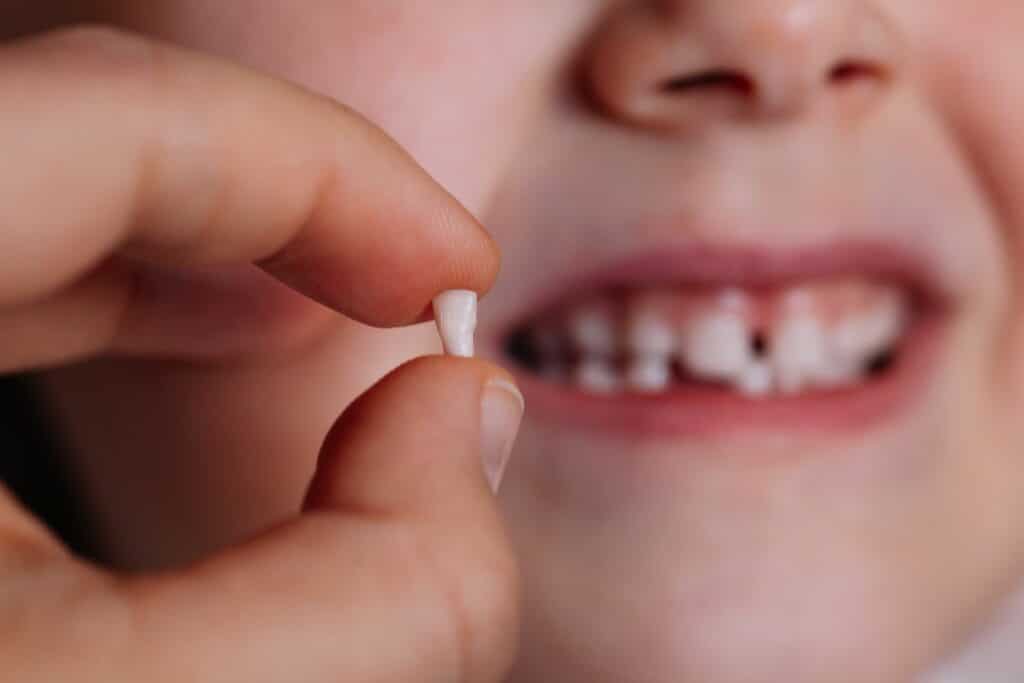Baby's milk teeth usually appear from the age of 6 months. These milk teeth are made up of temporary teeth that have a similar structure to the permanent teeth. However, when a baby tooth falls out, its root is never visible. This is due to the phenomenon of rhizalysis which allows the root of the tooth to resorb.
Do baby teeth have a root?
Yes, baby teeth have roots, just like permanent teeth. The overall structure of baby teeth is similar to that of permanent teeth. However, there are slight differences:
- Milk teeth have thinner enamel, which increases the risk of cavities,
- Milk teeth are whiter than permanent teeth,
- They are smaller than permanent teeth to fit the jaw of a toddler,
- Their coronary height is shorter.
Learn more about recognize baby teeth of your child.
Baby tooth roots and permanent tooth growth
What happens to the root of the baby tooth when the permanent teeth come in?
Milk teeth have a structure generally identical to the permanent teeth. They have roots that are less anchored in the jawbone so they can fall out more easily. However, when baby teeth fall out, their roots are never visible.
Indeed, the root of the milk teeth resorbs under the effect of the growth of the definitive teeth just below. This is the phenomenon of rhizalysis. This can also lead to exposure of the dental pulp due to the dental wear of rhizalysis.
Your child's number of teeth is not the same depending on whether he has his baby teeth or his permanent teeth.
Can an impact on a baby tooth have an impact on the root of the permanent tooth?
Milk teeth are more fragile than permanent teeth, so it is important to minimize shocks to protect them.
A baby tooth can sink into the bone or become demineralized and cause an abscess as a result of an impact, such as a fall from a bicycle. The germ of the permanent tooth can sometimes be damaged because of a sunken baby tooth.
In the event of a major impact on a baby tooth, it is therefore essential to consult a dentist quickly.
Reminder of what a baby tooth is
The milk teeth are the first teeth of babies and appear on average at the age of 6 months. The incisors are the first to emerge followed by the canines and finally the milky molars. These teeth are temporary and are 20 in number and they will give way to the permanent teeth between 6 and 12 years, which are 32 in number.
Despite their temporary nature, milk teeth are essential to the proper development of babies and young children. Indeed, they allow toddlers to chew solid food.
They are also essential for learning to speak. Finally, they serve as a guide for the permanent teeth so that they grow in the right position.
These different reasons make it important, although temporary, to be sure to to keep the milk teethto take care of them and to treat them in case of problems.


